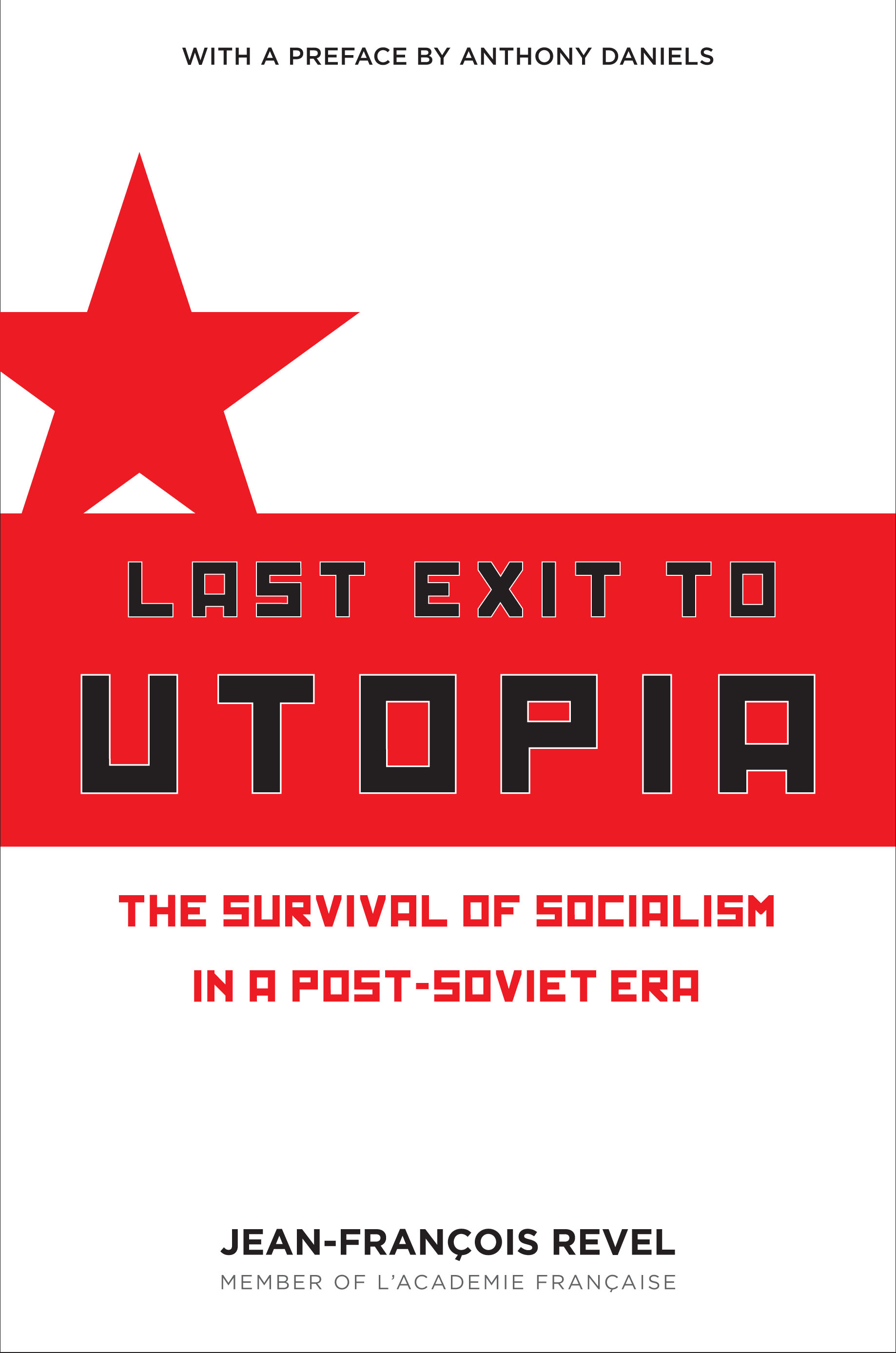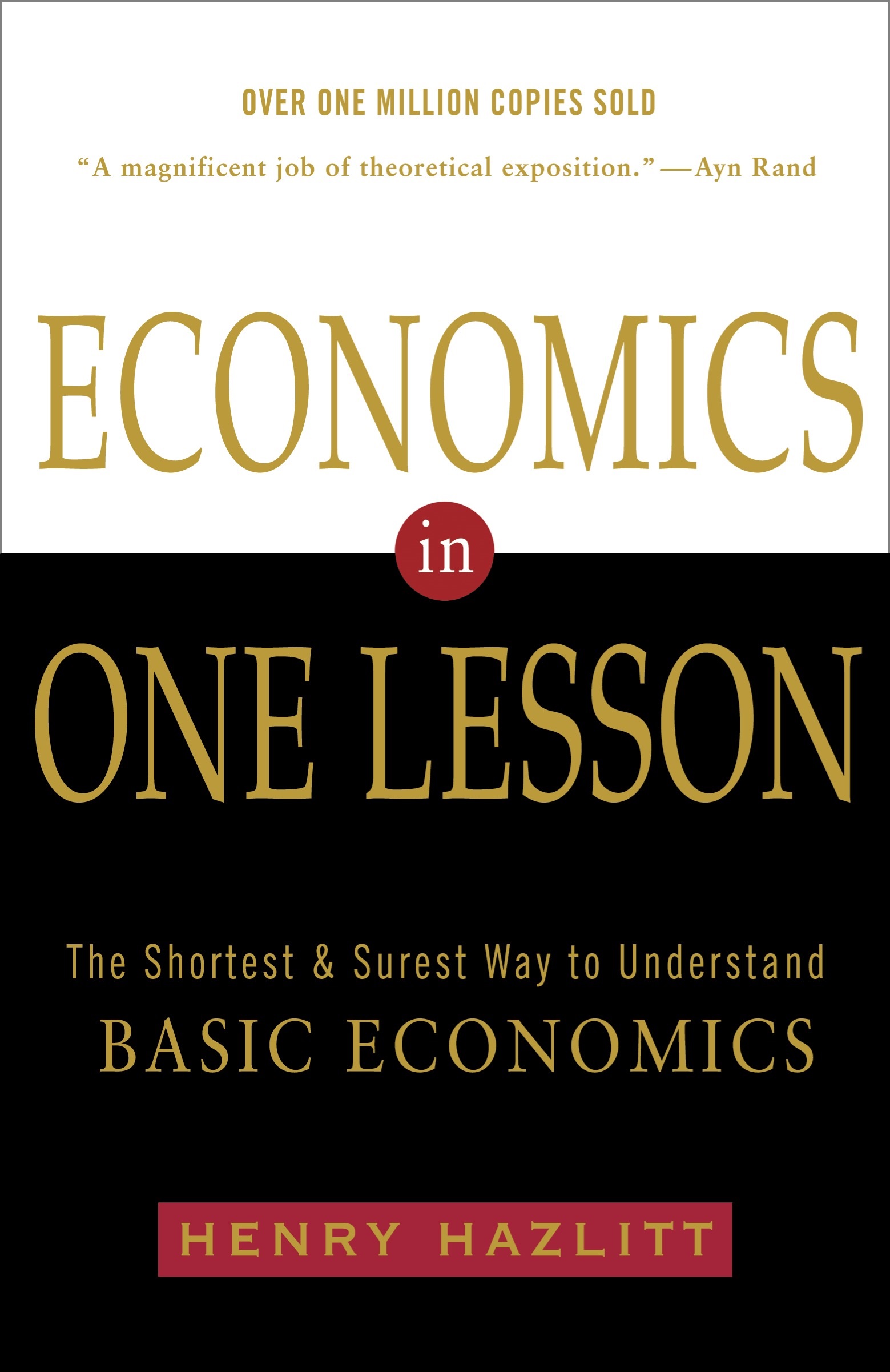5 Underrated Books on Conservatism that You Need To Know About
So you’ve read the conservative canon. You know the answer to the question “Who is John Galt?” and you’ve explored both God and man at Yale with William F. Buckley. You’ve learned how to avoid walking the road to serfdom with Hayek and you’ve learned about the conscience of a conservative with Goldwater (and not the ripoff version by RINO Jeff Flake). You’ve read Levin, Shapiro, Coulter, Malkin — you’ve got an entire library of that sort of stuff.
You’re looking for something a bit deeper when it comes to conservative books. And we’re here to help.
It’s hard to tell what necessarily constitutes “underrated” conservative books. However, for our purposes, I asked myself this one question: Would my editor know about this book or know about its conservative message? If not, it was underrated.
Underrated Book #1: “Last Exit to Utopia,” Jean-Francois Revel

The emergence of socialists like Sen. Bernie Sanders and Alexandra Ocasio-Cortez may come as a shock to those who thought socialism had died with the Soviet Union and the transformation of the socialism-lite regimes of Scandinavia and western Europe. Jean-Francois Revel, however, predicted this sort of thing would happen almost 20 years ago.
Revel may not be known to readers in America, but he was a giant of European conservatism. A member of the Académie française, Revel was a former socialist who turned to free-market capitalism as he got older. He was most concerned with the specter of totalitarianism under the auspices of the left, and he realized it didn’t go away just because the Soviet Union did.
“Last Exit to Utopia,” first published in France in 2000, is subtitled “The Survival of Socialism in a Post-Soviet Era.” It mainly focused on the French left and their struggle to deal with the undoing of the Marxist dream. “After the collapse of Soviet Communism, politicians and intellectuals of the Old Left began a vigorous counteroffensive aiming to erase or invert the obvious conclusions to be drawn from that event and, more generally, from the manifest failures of socialist ideology,” Revel wrote. Instead, they attacked anyone who deigned to imply communism and socialism were really as bad as they were.
Bret Stephens, writing in the Wall Street Journal, noted that intellectuals in Europe simply couldn’t “acknowledge that the collapse of communism was the supreme vindication for Cold War anticommunists such as Revel, long reviled as a political paranoid and closet fascist. Instead, the left’s new refrain was that, whatever the excesses of communism, they were as nothing next to those of ‘(classical) liberal totalitarianism’ and ‘savage capitalism.’ Communism, in this view, more than redeemed itself through its aspirations for social justice. And to the extent that actual Communist regimes—namely, all of them—fell short of that ideal, it merely proved that they hadn’t been Communist to begin with!”
In the book’s most-quoted sentence, Revel notes: “Utopia is not under the slightest obligation to produce results: its sole function is to allow its devotees to condemn what exists in the name of what does not.” It was first translated into English and published in the United States in 2009, just as Barack Obama came to power. That lesson certainly proved itself true over the eight years after its U.S. publication. It could prove itself even more prescient in the years to come.
Underrated Book #2: “Economics in One Lesson,” Harry Hazlitt

It’s difficult to impress upon modern readers just how homogeneous (and how liberal) economics were not so long ago. Just forty years ago, Richard Nixon unabashedly said that “we’re all Keynesians now.” Thankfully, Ronald Reagan and Margaret Thatcher had something to say about that. But long before that, Henry Hazlitt was teaching everyday Americans in plain language what the economic realities really were.
Hazlitt was a journalist who worked at publications ranging from the Wall Street Journal to The Nation, mostly in finance. In 1946, at a time when it was deeply unpopular, Hazlitt championed the Austrian school of economics — the conservative line of thought that includes economists like Ludwig von Mises, Friedrich Hayek and Murray Rothbard.
Hazlitt gave readers simple lessons it would do our politicians well to remember these days.
Redistribution and the “Fight for $15?”: “We cannot distribute more wealth than is created. We cannot in the long run pay labor as a whole more than it produces.”
Taxation? “When your money is taken by a thief, you get nothing in return. When your money is taken through taxes to support needless bureaucrats, precisely the same situation exists.”
Make-work jobs? “The belief that public works necessarily create new jobs is false. If the money was raised by taxation, we saw, then for every dollar that the government spent on public works one less dollar was spent by the taxpayers to meet their own wants, and for every public job created one private job was destroyed.”
It may be economics in one lesson, but it’s a lesson the Democrats have been putting off since 1828.
Underrated Book #3: “Boomsday,” Christopher Buckley
This feels a bit like cheating. Christopher Buckley isn’t exactly underrated — he is, after all, the talented son of the father of the conservative movement, the aforementioned William F. Buckley, who’s written plenty of conservative books. He’s made the bestseller list numerous times and even has a movie adaptation of one of his novels (the excellent “Thank You for Smoking”). He’s also not exactly a conservative these days, having resigned from the magazine his father founded after he endorsed Barack Obama in 2008.
We all make mistakes, however, and “Boomsday” was written some time before that error. Unlike most of Buckley son’s other satires of Washington life, however, “Boomsday” takes a very definite political position: Social Security is going to implode, and it could just take what Jonathan Swift might have termed a modest proposal to fix it.
The novel’s protagonist, Cassandra Devine, finds herself doing public relations grunt work in Washington after a stint in the military (her shot at matriculating at Yale, alas, was torpedoed by her father’s decision to use her college fund to start a business). At night, she blogs about what she calls “boomsday” — the day where Social Security will go bust due to financial mismanagement and 77 million baby boomers trying to collect.
Devine notes that Social Security started off at a 15-to-1 ratio of those paying into it to those taking out of it; it will soon be 2-to-1. “You can run from that kind of math,” she says, “but you can’t hide. It means that someone my age will have to spend their entire life paying unfair taxes.”
So, Devine comes up with an idea with a euphemism that only a Washington hack could love: “voluntary transitioning.” In other words, incentivized euthanasia. Baby boomers get tax breaks and free botox, among other perks, in order for agreeing to be taken out of the gene pool at age 70. Helped along by her skills at spinning and an amoral Kennedy-esque politician, Cassandra aims to restore fiscal responsibility, one voluntary death panel at a time.
“Boomsday” isn’t just about fiscal responsibility, however. It’s perhaps the perfect satirical illustration of why Washington is where good ideas go to die. Yes, the “good idea” in this case might involve convincing people to die, but “Boomsday’s” depiction of the legislative process is something akin to a jaded, grown-up version of “I’m Just a Bill” from “Schoolhouse Rock.”
As you’ve probably noticed, “Boomsday” isn’t afraid to break taboos, and that’s also true with a lot of its other plot points; it’s easily the most ribald book on this list. On the other hand, “The Fountainhead” wasn’t exactly “The Hardy Boys,” if you get my drift — and no matter how you feel about Rand, you’ll never be laughing as hard at her stuff as you will be here.
Underrated Book #4: “On Liberty,” John Stuart Mill
No list of underrated conservative books can be complete without kicking it old school, and while we’re not going back to Plato or Cato the Elder, 1859 is pretty darn old school. John Stuart Mill’s book was one of the best defenses of individualism at a time and place when it wasn’t necessarily popular. It’s also considered one of the formative texts of libertarianism.
“The only purpose for which power can be rightfully exercised over any member of a civilized community, against his will, is to prevent harm to others,” Mill wrote. “His own good, either physical or moral, is not a sufficient warrant.”
Mill’s argument was that individualism was the highest good in a society and that it shouldn’t just be protected against those who would legislate against freedom, but those who would force their opinions upon others through social pressure.
“Protection, therefore, against the tyranny of the magistrate is not enough: there needs protection also against the tyranny of the prevailing opinion and feeling; against the tendency of society to impose, by other means than civil penalties, its own ideas and practices as rules of conduct on those who dissent from them; to fetter the development, and, if possible, prevent the formation, of any individuality not in harmony with its ways, and compel all characters to fashion themselves upon the model of its own,” Mill wrote.
In an era where opposing viewpoints are so easily silenced, especially in academia, that’s a breath of fresh air. As is this: “The real advantage which truth has, consists in this, that when an opinion is true, it may be extinguished once, twice, or many times, but in the course of ages there will generally be found persons to rediscover it, until some one of its reappearances falls on a time when from favourable circumstances it escapes persecution until it has made such head as to withstand all subsequent attempts to suppress it. “
Be forewarned, “On Liberty” is probably the most difficult of the books on this list; Mill was an intellectual and 19th-century British political philosophy isn’t exactly known to scan like “Gone Girl.” It isn’t long, however, and for those willing to brace themselves and take the plunge, they’ll find many of the underpinnings of the modern conservative movement as we know it.
Underrated Book #5: “The Flight of the Intellectuals,” by Paul Berman
“The Flight of the Intellectuals” is an outlier on this list: it’s a conservative book, written by an avowed liberal. However, Paul Berman — a longtime voice on the moderate left — saw how intellectuals in Europe were treating Tariq Ramadan and Ayaan Hirsi Ali.
Ramadan, now disgraced after several accusations of sexual assault, was considered one of Europe’s leading Muslim scholars. The grandson of the founder of the Muslim Brotherhood in Egypt, Ramadan had taught at Oxford and his banishment from the United States under the Patriot Act became a cause celebrated among European intellectuals. He put forward a common intellectual theme: the Muslim world was the victim of colonialism and bigotry.
Meanwhile, another intellectual of Muslim background — Ayaan Hirsi Ali — fled her native Somalia for Holland after genital mutilation and the possibility of forced marriage. Her collaborator on a movie critical of Islam, Theo Van Gogh, was shot and killed by radical Islamists. Ali, described by Berman as the “best-known feminist intellectual ever to come out of Africa,” has suffered “sneering masculine put-downs” because she believes that Islam is incompatible with the West.
Berman points to journalist Ian Buruma, who came out favorably for Ramadan but painted Ali as “a fanatical fundamentalist animated by crude ideas, zealous, strident, humorless, ineffective, counterproductive, contemptuous of people around her, arrogant, aristocratic, aggressive and hateful (or nearly so) toward humble immigrants, not really a feminist at all but, instead, a woman filled with disgust for women less successful than herself.”
Ramadan and Ali aren’t the only two Muslim intellectuals discussed in the book, but they’re the most visible and they make Berman’s point. The “flight of the intellectuals” he discusses is the difference between how intellectuals supported Salman Rushdie when a fatwa was issued against him by the Ayatollah Khomenei in 1989 for his book “The Satanic Verses” and how intellectuals in 2010 refused to support Ali even as Islamists attacked her, preferring Ramadan’s vision of the world.
“To the Western intellectuals, the poorest human beings in the poorest regions of the world appeared to be, in sum, better than other human beings, even if lacking in Western sophistication or other complexities,” Berman writes. “They were Noble Savages. Fantasies, in short. And the grand left-wing intellectuals of the Western countries never seemed to notice that, in conjuring those many fantastic images of people far away, they had ended up replicating the worst and most horrendous prejudices of the European imperialists of the past, except in a version that pretended to be admiring instead of hostile. The intellectuals pictured themselves as the enemies of racism, but somehow they had ended up as racists. They felt contempt for people different from themselves, and they packaged their contempt as compassion. They looked down, and described it as looking up.”
“Modern-day multiculturalism,” Berman warns, “renders everything the equal of everything else.”
These are, of course, just five relatively underrated books you may not have read. Perhaps they passed under your radar when they came out, like “Boomsday” or “Flight of the Intellectuals.” Perhaps you weren’t born yet, as with “On Liberty.” Either way, any of these would make good summer reading — and we’d love to hear about the conservative books you think are underrated.
Truth and Accuracy
We are committed to truth and accuracy in all of our journalism. Read our editorial standards.
Advertise with The Western Journal and reach millions of highly engaged readers, while supporting our work. Advertise Today.












